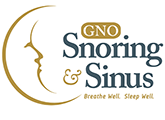Living with allergies can feel like navigating a minefield of triggers, from seasonal pollen to everyday foods. While traditional treatments have provided relief for many, the landscape of allergy management has undergone significant evolution in recent years. Today’s approach goes far beyond simply masking symptoms, offering hope for long-term relief and improved quality of life.
Understanding the Modern Approach to Allergy Treatment
The shift in allergy treatment philosophy has moved from reactive symptom management to proactive, personalized care. Rather than waiting for allergic reactions to occur and then treating them, modern medicine focuses on understanding individual triggers, preventing reactions, and retraining the immune system’s response.
This evolution acknowledges that allergies affect each person differently, necessitating personalized treatment plans that address specific triggers, varying severity levels, and individual lifestyle factors. The one-size-fits-all approach of the past has given way to precision medicine that considers genetic factors, environmental exposures, and personal health history.
Immunotherapy: Retraining Your Immune System
Subcutaneous Immunotherapy
Traditional allergy shots remain a cornerstone of modern treatment, but the approach has been refined significantly. These treatments work by gradually exposing the immune system to increasing amounts of allergens, helping it build tolerance over time. The process involves a careful buildup phase followed by maintenance treatments that can provide lasting relief.
The effectiveness of this approach has been enhanced through better allergen standardization and personalized dosing protocols. Many patients experience significant improvement in symptoms and reduced need for medications after completing a full course of treatment.
Sublingual Immunotherapy
A newer approach involves placing allergen extracts under the tongue, offering a convenient alternative to injections. This method can be administered at home after initial medical supervision, making it particularly appealing for busy lifestyles or those with needle anxiety.
Research has shown this treatment to be effective for certain allergens, particularly grass pollens and dust mites. The convenience factor has led to better patient compliance and outcomes in many cases.
Targeted Medication Therapies
Biologics: Precision Treatment
Revolutionary biological medications target specific pathways in the allergic response, offering hope for severe cases that haven’t responded to conventional treatments. These medications work by blocking particular immune system proteins that drive allergic reactions.
Unlike broad-spectrum treatments, biologics can be precisely matched to individual immune system patterns, resulting in more effective treatment with fewer side effects. This approach has transformed care for severe asthma, chronic hives, and other challenging allergic conditions.
Advanced Topical Treatments
Modern topical treatments have evolved beyond basic steroid creams to include targeted anti-inflammatory agents that work at the cellular level. These treatments can provide rapid relief while minimizing systemic effects, making them suitable for long-term use in many cases.
New formulations improve skin penetration and duration of action, reducing the frequency of applications needed and improving patient satisfaction with treatment outcomes.
Environmental Management Strategies
Smart Home Technology
Modern environmental control goes beyond basic air filters to include smart monitoring systems that track allergen levels in real-time. These systems can automatically adjust ventilation, humidity, and filtration based on current conditions and individual sensitivity patterns.
Integration with weather data and pollen forecasts allows for proactive environmental adjustments before allergen levels peak, preventing reactions rather than just treating them after they occur.
Advanced Air Purification
High-efficiency particulate air systems have been enhanced with multiple filtration stages and UV sterilization capabilities. These systems can remove microscopic allergens, bacteria, and viruses from indoor air, creating cleaner living environments.
Portable units designed for specific rooms allow targeted treatment of sleeping and working areas where people spend the most time, maximizing effectiveness while managing costs.
Dietary and Nutritional Interventions
Elimination and Reintroduction Protocols
Systematic approaches to identifying food triggers have become more sophisticated, using detailed tracking and controlled reintroduction methods. This process helps pinpoint specific problematic foods while avoiding unnecessarily restrictive diets.
Working with specialized nutritionists ensures that dietary modifications maintain proper nutrition while eliminating trigger foods, particularly important for children and those with multiple food sensitivities.
Anti-Inflammatory Nutrition
Research has revealed the connection between overall inflammation levels and allergic sensitivity. Dietary approaches that reduce systemic inflammation can significantly improve allergy symptoms and reduce medication needs.
Focusing on foods rich in natural anti-inflammatory compounds, omega fatty acids, and antioxidants can complement medical treatments and improve overall immune system function.
Emerging Technologies and Treatments
Nasal Phototherapy
Light therapy delivered through specialized nasal devices represents an innovative approach to treating allergic rhinitis. This treatment uses specific wavelengths of light to reduce inflammation in the nasal passages and improve symptoms.
Clinical studies have shown promising results with minimal side effects, offering an alternative for patients who cannot tolerate medications or prefer non-drug approaches.
Microbiome Modulation
Understanding of the gut-immune system connection has led to treatments that modify the intestinal microbiome to reduce allergic sensitivity. This approach recognizes that immune system function is closely tied to digestive health and bacterial balance.
Targeted probiotic treatments and prebiotic supplementation can help restore healthy microbial communities that support appropriate immune responses and reduce allergic reactions.
Integrative Treatment Approaches
Combining Multiple Modalities
The most effective modern allergy treatment often involves combining several approaches tailored to individual needs. This might include immunotherapy for primary triggers, targeted medications for breakthrough symptoms, environmental controls for daily management, and nutritional support for overall immune health.
Success with integrative approaches requires coordination between different healthcare providers and careful monitoring of treatment interactions and effectiveness.
Mind-Body Techniques
Recognition of the stress-allergy connection has led to the incorporation of stress management techniques into comprehensive treatment plans. Meditation, breathing exercises, and other relaxation techniques can reduce stress-induced exacerbation of allergic symptoms.
These approaches are particularly valuable for patients whose symptoms worsen during stressful periods or who have developed anxiety around their allergic reactions.
Looking Toward the Future
Modern allergy treatment continues to evolve rapidly, with new understanding of immune system function leading to innovative therapeutic approaches. Personalized medicine based on genetic testing, advanced environmental monitoring, and precision immunotherapy protocols promises even more effective treatments in the coming years.
The focus has shifted from simply managing symptoms to achieving true remission and improved quality of life. With proper evaluation, personalized treatment planning, and ongoing monitoring, many people with allergies can achieve significant improvement and return to activities they previously had to avoid.
Success with modern allergy treatment requires partnership with knowledgeable healthcare providers who understand the full range of available options and can create comprehensive, personalized treatment plans that address individual needs and goals.
Ready to take control of your allergies? Schedule your comprehensive allergy evaluation today and discover which modern treatment options can work for you. Call our office or book online to start your journey toward lasting relief.

